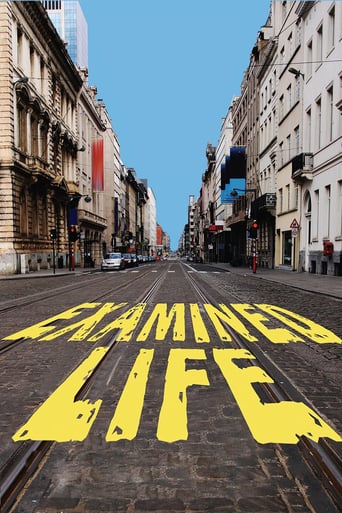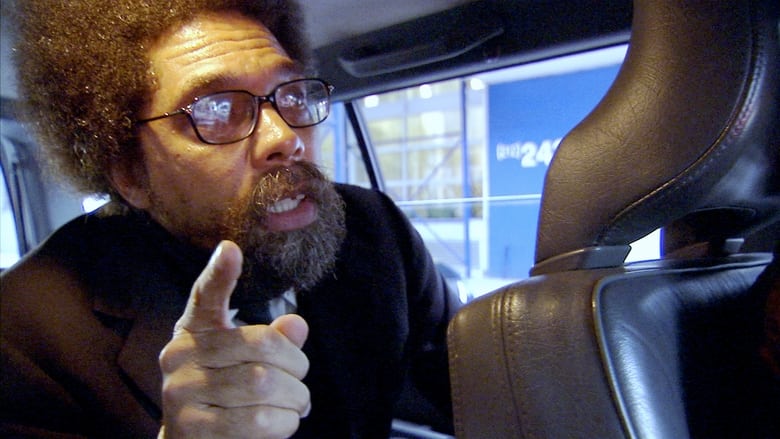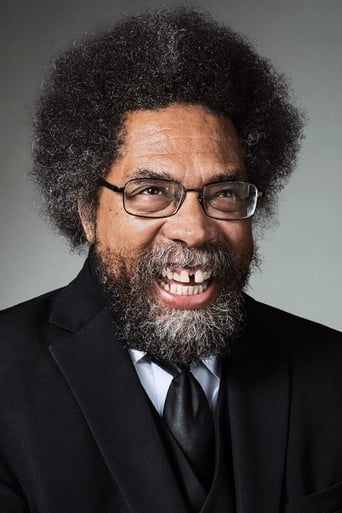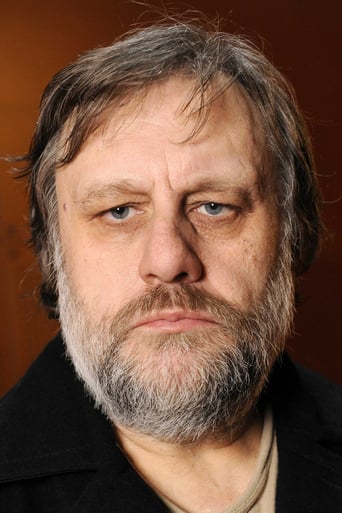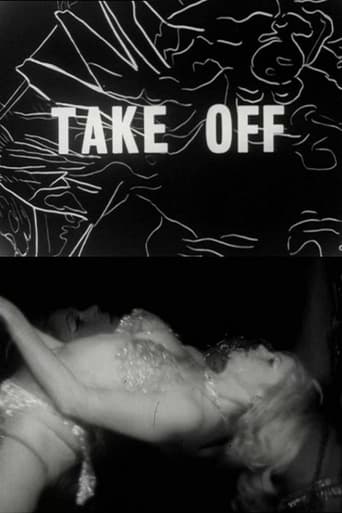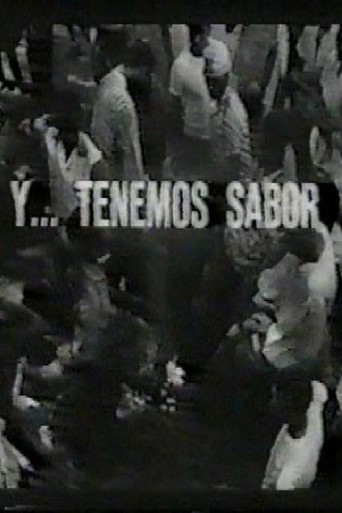Examined Life (2008)
Examined Life pulls philosophy out of academic journals and classrooms, and puts it back on the streets. Offering privileged moments with great thinkers from fields ranging from moral philosophy to cultural theory, Examined Life reveals philosophy's power to transform the way we see the world around us and imagine our place in it.
Watch Trailer
Cast
Similar titles
Reviews
Touches You
I don't have all the words right now but this film is a work of art.
A great movie, one of the best of this year. There was a bit of confusion at one point in the plot, but nothing serious.
It is an exhilarating, distressing, funny and profound film, with one of the more memorable film scores in years,
Perhaps my hopes were too high, or perhaps I was mistaken for actually expecting this to be related to philosophy, but this movie was disappointing. I'll start with the bad and end with the good. We have a lot of bad to get through. From a technical stand-point, the movie was poorly planned. There wasn't a clear theme that connected one speaker to the next in most cases. The movie is shot in the style of a moving-talking-head theme, with speakers giving their spiel as they move around environments which are supposed to intensify their themes. The effect of this varies. Appiah's scene was well executed, with his themes directly pertaining to his environment. However, in many of the scenes this indented effect was incredibly unclear and avoided entirely. In most of the speeches, the background only made sense when confronted with an open and sympathetic mind. To anyone else, much of it is simply egg-heads in the local park. However, much of the technical sloppiness with the film didn't particularly bother much. What was truly puzzling was the actual subject matter. With the exception of a few mentions and thoughts, this movie would have been better titled "Contemporary Collectivist Thought". Rather than focusing on the actual philosophical study of ethics, meaning, truth etc. nearly all of the speakers focus on propagating a political agenda, mentioning the philosophy involved merely as a side note. Rather one agrees or disagrees with the politics being propagated, one can't help but feel cheated by the severe lack of true philosophy. There are plenty of political documentaries one could choose to watch which are far better. And let's not forget the proud tradition of philosophers and their politics; Sartre defended Stalin, Heidegger was a Nazi, and Plato was an authoritarian. But alas, I digress. The simple point I want to make is that this should have focused on philosophy and not politics. Perhaps it was poor interviewing or a lack of focus, but the movie generally failed the subject of philosophy. So what was good? While I feel some tracks were clearly stronger than others, the soundtrack was generally good. I thoroughly enjoyed each scene in which Cornel West spoke, and would have preferred to watch an hour and half of him alone compared to the documentary we were given. And, although it's sad to have to stoop to this in listing what was good, the idea of the movie was good. It was simply poorly executed. If one is looking for some interesting speeches on leftist political thought, look to those more involved in political studies. There are far better documentaries on the subject. What's more, if one has political views short of the far left, ignore this completely. If one wants to watch a film with philosophical themes, look elsewhere (namely Waking Life). If one has free time, look elsewhere. There is nothing about this film that I can see as great for anyone. Perhaps one could cut the West bits and present them as a nice little bit on philosophy. But beyond that, I have no reason to recommend this film.
I'm surprised this movie is rated so highly. I thought any movie that tried to make you think would start at 5 and go down from there. While it's encouraging that that's not the case, it's unfortunate that this has to be the movie to hold up as an example.There is nothing profound here. There is no coherent theme or narration to tie everything together. It is just a collection of people discussing their new-agey ideas seemingly off the top of their head. I would have much preferred a scripted lecture where every sentence was thought out in advance.I was hoping to learn something here or at least say "hmm, that's interesting". But that didn't happen once. Maybe philosophy will always require a book to appreciate and will never lend itself to a good movie. I actually do think it is possible, this movie just doesn't deliver.
If one were to strike up a conversation with any student of philosophy or pseudo intellectual,within the confines of their study or library, they would have truck loads of source materials to quote by. Take them out of these confines and you have the basis for this stunning documentary, 'Examined Life'. Astra Taylor,who previously turned her independent lens on Slovenian philosophical wizard,Slavoj Zizek, trains her camera on several talking heads to ruminate on life,love,the environment,etc. What makes this documentary all the more interesting is the settings for these intellectuals to talk their talk (and walk the walk,or row a boat,or whatever). The likes of Judith Butler,Martha Nussbaum,Cornell West,and yes....Slavoj Zizek,himself turn up to give their views on whatever crosses their minds (and paths). This is obviously a film that will be of extreme interest to some,and a crashing bore to others (I counted a few walk out's during the screening that I attended). One of the most interesting segments that stuck with me long after exiting the cinema was a discussion between gender theorist,Judith Butler & the director's sister,Sunaura Taylor,who requires a motorized wheelchair, due to a disability,waxes philosophical on the prejudices of the handicapped & the gay,lesbian,bi-sexual & trans-gendered community. 'Examined Life' is not a film that will be everybody's cup of tea,but those with an open mind & a sense of adventure may just get their groove on with it (and even learn something in the end). Not rated by the MPAA,this film does serve up a few rude words,but contains nothing else to offend.
'Examined Life' introduces what may be a whole new sub-genre: the philosophical chat documentary. The title's an obvious allusion to Socrates' famous statement, 'The unexamined life is not worth living.' The film's eight philosophers are peripatetic, though Taylor doesn't claim this alludes to Aristotle, who, they say, walked around while lecturing. The philosopher of running, Dr. George Sheehan, liked to quote Thoreau: "Trust no thought arrived at sitting down." If that's true, maybe we'll have to distrust two of the speakers, because one is in a car and another is rowing a boat on a lake.It's good if you can lure the public to watch a documentary film that provides a taste of what philosophical thinking is like. Unfortunately the talkers, Cornel West, Avita Ronell, Peter Singer, Kwame Anthony Appiah, Martha Nussbaum, Michael Hardt, Judith Butler, and Savoj Zizek, aren't really making philosophy as they go along, the way Wittgenstein and G.E. Moore did, as well as their followers A.J. Ayer and Gilbert Ryle. Instead, they're just summarizing some of their main ideas or repeating riffs they've done before or answering questions from Taylor as they're being filmed walking, rowing, riding, or, in the case Zizek, fidgeting around in front of some piles of rubbish at a London dump. (Taylor previously made a film about the showy, provocative Slovenian.)While each of us asks about the meaning of life at some point or another, it's not a sure thing that philosophy is of any use, even to itself, in answering that question. Wittgenstein famously said that of what matters most to us we can say nothing. After a pungent name-dropping riff by West sitting in the back of Taylor's car, Ronell, a "deconstructionist," begins her sequence, pacing a Central Park sidewalk, with a strong dose of skepticism, not to say metaphysical and moral angst. "If you have a good conscience, then you're worthless," she opines. Disdainfully asserting that though ten minutes to speak may be fine for the others, it's ridiculous for herself, she haughtily makes a point of distinguishing between philosophy and thinking. So there's some question whether anything said by these eight people is of any use, or whether presenting them sequentially (with Cornell West injected at three points as a sort of unifying voice) makes any logical sense. But it does, because philosophers do get back to basics, and all of them are talking in one way or another about how to live.In his 'Village Voice' review of 'Examined Life' J. Hoberman falls into the inevitable trap of rating the speakers one by one. He finds Singer smug and obvious and says his "neo-Kantian platitude" about "commitment to the common good" "stops the conversation" and illustrates that distinction between philosophy and thinking. Actually Singer's stroll down Fifth Avenue while advocating vegetarianism and suggesting it's better to donate a thousand dollars to charity than to spend it on an elegant suit seemed effective and thought-provoking to me; and Singer had the best command of everyday, unpretentious language.Singer's position coheres with those of Nussbaum and Butler, both of whom speak of the need to act democratically. The image of a Bushian un-compassionate conservatism hovers behind their assertion of our collective obligation to provide for and protect those who are different, or poor, or handicapped. Nussbaum points out that everyone is "handicapped" in infancy and old age, so the need for help is universal. Butler explores a San Francisco second-hand clothing store with a wheelchair-bound friend, Sunaura Taylor, discussing accessibility and gender issues. All of this adds up to the need for a more liberal and humane society. Appiah adds another consideration: culture. As he walks through the international wing of a airport, en route to somewhere, he talks about growing up in a shack and having a Ghanan mother and English father and describes cosmopolitanism--and distinguishes it from cultural relativity. It's important to realize that people can live well (be good), he says, while following different values.One may be a cosmopolite like Appiah, but it may be better to stay at home. So you might conclude from the words of Michael Hardt, co-author of the book 'Empire.' In his youth he and others went to Latin America to engage in revolution, but they were advised to go back and make their revolution here. As he rows around the lake and runs aground looking at big turtles, he may seem ineffectual. There is the danger in this medium of peppy visuals and extended sound bites that these important thinkers and writers may wind up over-simplifying or parodying themselves.Zizek, like Jean Baudrillard, delivers provocative pronouncements that seem to defy common sense. It may simply be that while he can devastate you in the sound bites, with a kind of hit-and-run effect, he can't ever be properly understood in such small chunks. His primary point this time is that "shit" doesn't go away as we imagine, when we flush. We need to as it were "embrace" our mountains of waste, forget about living in nature, and accept being more artificial. But since he acknowledges that global warming is a real problem, why does he insist that "ecology" is the comforting new orthodoxy, like "religion" to Marx? What are we to do with this information, if it be true? And it's hard to see what to do with Cornell West's dazzling high culture jive talk about history, jazz, blues, slavery, courage, and much else. The thing about West is that, like Zizek, you may come away only with questions, but you may also, especially if you're young, come away thinking you want to be able to talk like that and think like that and have all that stuff in your head. Somewhere out of this you may get the urge to think or act in new ways. And in that sense this philosophers' sampler will have justified its existence.
